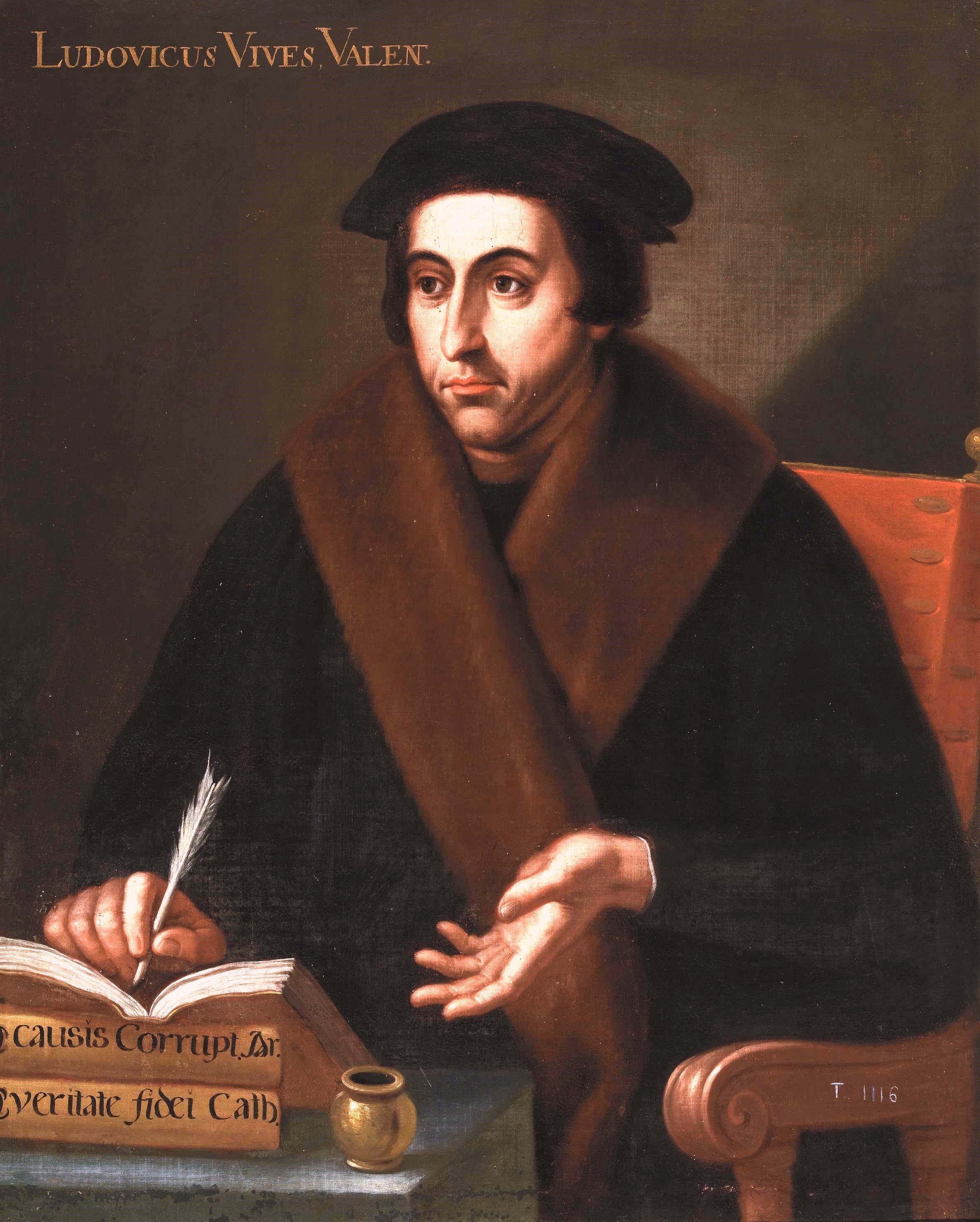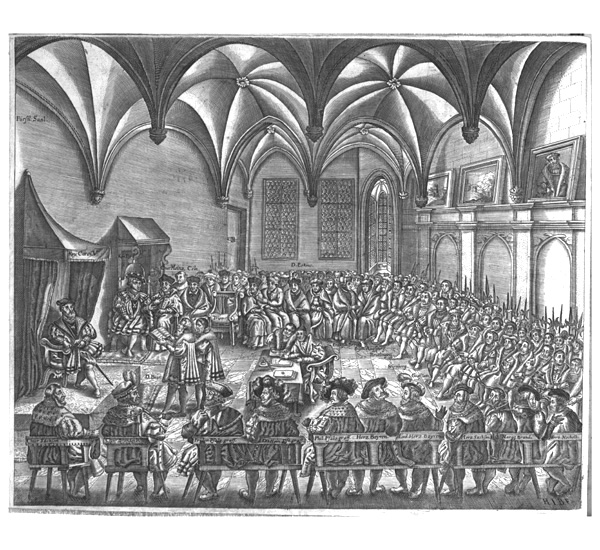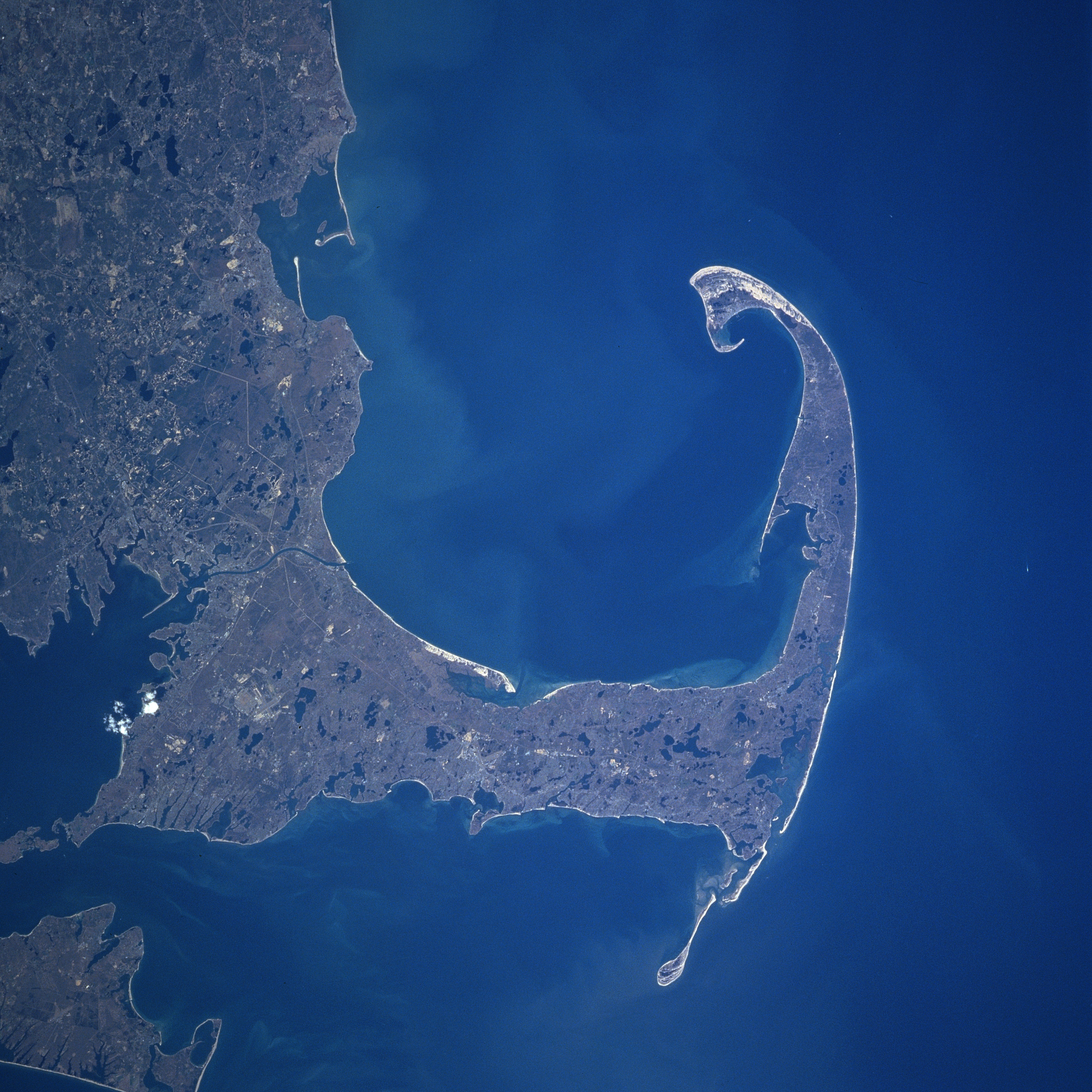|
Francisco Agustín Tárrega
Francisco Agustín Tárrega (c. 1555 – 7 November 1602) was a Spanish clergyman, poet and playwright. Biography After graduating in the Arts from the University of Valencia in 1575, he went on to obtain his doctorate in Canon law from the University of Salamanca in 1578. Sirera, Josep Lluís"Francisco Agustín Tárrega". ''Diccionario Biográfico electrónico''.Real Academia de la Historia. Retrieved 2 January 2025. Tárrega was of the co-founders, in 1591, of the Academia de los Nocturnos (Literary Society of the Night Revelers), one of the first ''academia literarias'' created in Spain, where he participated under the pseudonym of ''Miedo'' ('Fear'). Works As a participant of the ''Nocturnos'', and writing under the pseudonym ''Miedo'', Tárrega wrote several tens of poems and works of prose. His '' comedias'', all dating from after the mid-1580s, were published posthumously, with ''El Prado de Valencia'' (The Meadow of Valencia) being a heroic drama and the remainder, cloak-an ... [...More Info...] [...Related Items...] OR: [Wikipedia] [Google] [Baidu] |
University Of Valencia
The University of Valencia ( ), shortened to UV, is a public research university in Valencia, Spain. It is one of the oldest universities in Spain, and the oldest in the Valencian Community. It is regarded as one of Spain's leading academic institutions. The university was founded in 1499, and currently has around 55,000 students. Most of the courses are taught in Spanish, however their plan is to increase the number of courses available in Valencian and English as well. It is located in the Mediterranean Spanish baseline, in the city of Valencia which is the capital and most populous city of the autonomous community of Valencia and the third largest city in Spain, with a population of 829,705 in 2014. One of its campuses is located in the metropolitan area of Valencia, in the municipalities of Burjassot and Paterna. The current chancellor is María Vicenta Mestre Escrivá. History At the request of James I the Conqueror, Pope Innocent IV in 1246 authorized (by a Bull) ... [...More Info...] [...Related Items...] OR: [Wikipedia] [Google] [Baidu] |
Canon Law
Canon law (from , , a 'straight measuring rod, ruler') is a set of ordinances and regulations made by ecclesiastical jurisdiction, ecclesiastical authority (church leadership) for the government of a Christian organization or church and its members. Canon law includes the internal ecclesiastical law, or operational policy, governing the Catholic Church (both the Latin Church and the Eastern Catholic Churches), the Eastern Orthodox Church, Eastern Orthodox and Oriental Orthodoxy, Oriental Orthodox churches, and the individual national churches within the Anglican Communion. The way that such church law is legislative power, legislated, interpreted and at times court, adjudicated varies widely among these four bodies of churches. In all three traditions, a canon (canon law), canon was originally a rule adopted by a church council; these canons formed the foundation of canon law. Etymology Greek language, Greek / , Arabic language, Arabic / , Hebrew language, Hebrew / , 'straigh ... [...More Info...] [...Related Items...] OR: [Wikipedia] [Google] [Baidu] |
University Of Salamanca
The University of Salamanca () is a public university, public research university in Salamanca, Spain. Founded in 1218 by Alfonso IX of León, King Alfonso IX, it is the oldest university in the Hispanic world and the fourth oldest in the world List of oldest universities in continuous operation, in continuous operation. It has over 30,000 students from 50 different nationalities. History Prior to the foundation of the university, Salamanca was home to a cathedral school, known to have been in existence by 1130. The university was founded as a ''studium generale'' by the Leonese king Alfonso IX of León, Alfonso IX in 1218 as the ''scholas Salamanticae'', with the actual creation of the university (or the transformation of the existing school into the university) occurring between August 1218 and the following winter. A further royal charter from King Alfonso X, dated 8 May 1254, established rules for the organisation and financial endowment of the university, and refer ... [...More Info...] [...Related Items...] OR: [Wikipedia] [Google] [Baidu] |
Real Academia De La Historia
The Royal Academy of History (, RAH) is a Spanish institution in Madrid that studies history "ancient and modern, political, civil, ecclesiastical, military, scientific, of letters and arts, that is to say, the different branches of life, of civilisation, and of the culture of the Spanish people". Spanish people in this regard are understood to be citizens of the Kingdom of Spain or the indigenous people of its predecessors, or their descendants. The academy was established by royal decree of Philip V of Spain on 18 April 1738. Its official publication is the '' Boletín de la Real Academia de la Historia''. Building Since 1836 the academy has occupied an 18th-century building designed by the neoclassical architect Juan de Villanueva. The building was originally occupied by the Hieronymites, a religious order. It became available as a result of legislation in the 1830s confiscating monastic properties (the ecclesiastical confiscations of Mendizábal). Collections As former ... [...More Info...] [...Related Items...] OR: [Wikipedia] [Google] [Baidu] |
Academia Literaria
The ''academia literaria'' ('literary academy') was a literary ''tertulia'' popular during Spain's Spanish Golden Age, Golden Age (''Siglo de Oro'') of literature and the arts, from the early sixteenth century to the late seventeenth century (c. 1500 – 1681), and especially during the reign of the Habsburg Spain, Spanish Habsburgs and, in particular, that of King Philip II of Spain, Philip II (1556–1598), a significant patron of Spanish art and culture. By the seventeenth century, these literary academies had become "one of the most prominent features of literary life... in Spain",Robbins, Jeremy (1997)''Love Poetry of the Literary Academies in the Reigns of Philip IV and Charles II'', pp. 1, 10–11. Tamesis.''Google Books''. Retrieved 2 January 2025. and many leading men of letters, such as Lope de Vega, Luis de Góngora, Luis Vélez de Guevara and Francisco de Quevedo would be members of more than one ''academia''. Many sought to make their voices heard in the literary gathe ... [...More Info...] [...Related Items...] OR: [Wikipedia] [Google] [Baidu] |
Comedia (play)
In the Spanish Golden Age (Siglo de Oro) tradition, a ''comedia'' is a three-act play combining dramatic and comic elements. The principal characters are noblemen (''galanes''; : ''galán'') and ladies (''damas'') who work out a plot involving love, jealousy, honor and sometimes also piety or patriotism. Supporting characters include comical servants (''graciosos'') who assist their employers in carrying out the action. Largely created and defined by Lope de Vega, the style is defined by a mixture of tragedy and comedy. Originally referred to loosely as "tragicomedy", the name was eventually shortened to simply "''comedia''". Dr. Sebastián Francisco de Medrano, founder and president of the Medrano Academy (1616–1622), became the commissioner of the Spanish Inquisition, official censor of ''comedias''. See also * ''Commedia dell'arte Commedia dell'arte was an early form of professional theatre, originating from Theatre of Italy, Italian theatre, that was popular throug ... [...More Info...] [...Related Items...] OR: [Wikipedia] [Google] [Baidu] |
Heroic Drama
Heroic drama is a type of Play (theatre), play popular during the English Restoration, Restoration era in England, distinguished by both its verse structure and its subject matter. The subgenre of heroic drama evolved through several works of the middle to later 1660s; John Dryden's ''The Indian Emperour'' (1665 in literature, 1665) and Roger Boyle, 1st Earl of Orrery, Roger Boyle's ''The Black Prince (play), The Black Prince'' (1667 in literature, 1667) were key developments. Dryden in 1670 The term "heroic drama" was invented by Dryden for his play, ''The Conquest of Granada'' (1670 in literature, 1670). For the ''Preface'' to the printed version of the play, Dryden argued that the drama was a species of ''epic poetry'' for the stage, that, as the epic was to other poetry, so the heroic drama was to other plays. Consequently, Dryden derived a series of rules for this type of play. First, the play should be composed in heroic verse (closed couplets in iambic pentameter). Seco ... [...More Info...] [...Related Items...] OR: [Wikipedia] [Google] [Baidu] |
CORE (research Service)
CORE (Connecting Repositories) is a service provided by the based at The Open University, United Kingdom. The goal of the project is to aggregate all open access content distributed across different systems, such as repositories and open access journals, enrich this content using text mining and data mining, and provide free access to it through a set of services. The CORE project also aims to promote open access to scholarly outputs. CORE works closely with digital libraries and institutional repositories. Service description There are existing commercial academic search systems, such as Google Scholar, which provide search and access level services, but do not support programmable machine access to the content. This is seen with the use of an API or data dumps, and limits the further reuse of the open access content (e.g., text and data mining). There are three access levels to content: * access at the granularity of papers * analytical access and granularity of colle ... [...More Info...] [...Related Items...] OR: [Wikipedia] [Google] [Baidu] |
1555 Births
Year 1555 ( MDLV) was a common year starting on Tuesday of the Julian calendar. Events January–March * January 22 – The Kingdom of Ava in Upper Burma falls. * February 2 – The Diet of Augsburg begins. * February 4 – John Rogers is burned at the stake at Smithfield, London, becoming the first of the 284 Protestant martyrs of the English Reformation to be killed during the five and one-half year reign of Queen Mary I of England. His death is followed within the week by that of Laurence Saunders on February 8 in Coventry, and Rowland Taylor, Rector of Hadleigh, Suffolk, and John Hooper, deposed Bishop of Gloucester on February 9. * February 26 – The Muscovy Company is chartered in England to trade with the Tsardom of Russia and Richard Chancellor negotiates with the Tsar. * March 25 – Valencia, Venezuela, is founded by Captain Alonso Díaz Moreno. April–June * April 9 – Marcello Cervini degli Spannocchi is unanimously ... [...More Info...] [...Related Items...] OR: [Wikipedia] [Google] [Baidu] |
1602 Deaths
Events January–March * January 3 – Battle of Kinsale: The English defeat Irish rebels and their Spanish allies. (The battle happens on this date according to the Gregorian calendar used by the Irish and Spanish but on Thursday, 24 December, 1601 according to the old Julian calendar used by the English.) * February 2 (Candlemas night) – In London, the first known production of William Shakespeare's comedy ''Twelfth Night'' takes place. * March 20 – The United East India Company is established by the United Provinces States-General in Amsterdam, with the stated intention of capturing the spice trade from the Portuguese. April–June * April 20 – The Danish–Icelandic Trade Monopoly is established. * May 25 (May 15 Old Style) – English explorer Bartholomew Gosnold, sailing in the ''Concord'', becomes the first European at Cape Cod. * June 2 – Dutch explorer Joris van Spilbergen lands on the eastern side of the island of Sri Lanka, at Santhamuruthu, and begi ... [...More Info...] [...Related Items...] OR: [Wikipedia] [Google] [Baidu] |
Writers From Valencia
A writer is a person who uses written words in different writing styles, genres and techniques to communicate ideas, to inspire feelings and emotions, or to entertain. Writers may develop different forms of writing such as novels, short stories, monographs, travelogues, plays, screenplays, teleplays, songs, and essays as well as reports, educational material, and news articles that may be of interest to the general public. Writers' works are nowadays published across a wide range of media. Skilled writers who are able to use language to express ideas well, often contribute significantly to the cultural content of a society. The term "writer" is also used elsewhere in the arts and music, such as songwriter or a screenwriter, but also a stand-alone "writer" typically refers to the creation of written language. Some writers work from an oral tradition. Writers can produce material across a number of genres, fictional or non-fictional. Other writers use multiple media such a ... [...More Info...] [...Related Items...] OR: [Wikipedia] [Google] [Baidu] |
Clergy From Valencia
Clergy are formal leaders within established religions. Their roles and functions vary in different religious traditions, but usually involve presiding over specific rituals and teaching their religion's doctrines and practices. Some of the terms used for individual clergy are clergyman, clergywoman, clergyperson, churchman, cleric, ecclesiastic, and vicegerent while clerk in holy orders has a long history but is rarely used. In Christianity, the specific names and roles of the clergy vary by Christian denomination, denomination and there is a wide range of formal and informal clergy positions, including deacons, Elder (Christianity), elders, priests, bishops, Cardinal (Catholic Church), cardinals, preachers, pastors, presbyters, Minister (Christianity), ministers, and the pope. In Islam, a religious leader is often known formally or informally as an imam, caliph, qadi, mufti, sheikh, mullah, muezzin, and ulema. In the Judaism, Jewish tradition, a religious leader is often a r ... [...More Info...] [...Related Items...] OR: [Wikipedia] [Google] [Baidu] |





